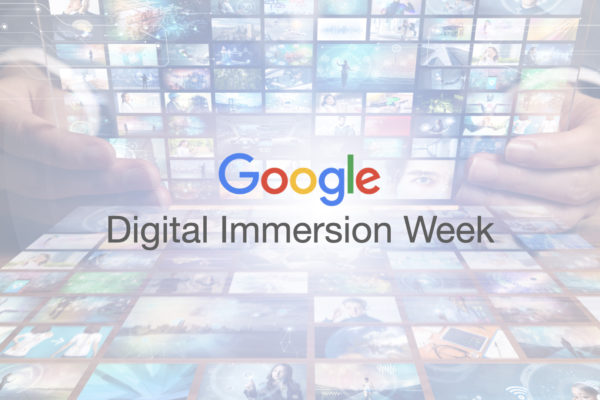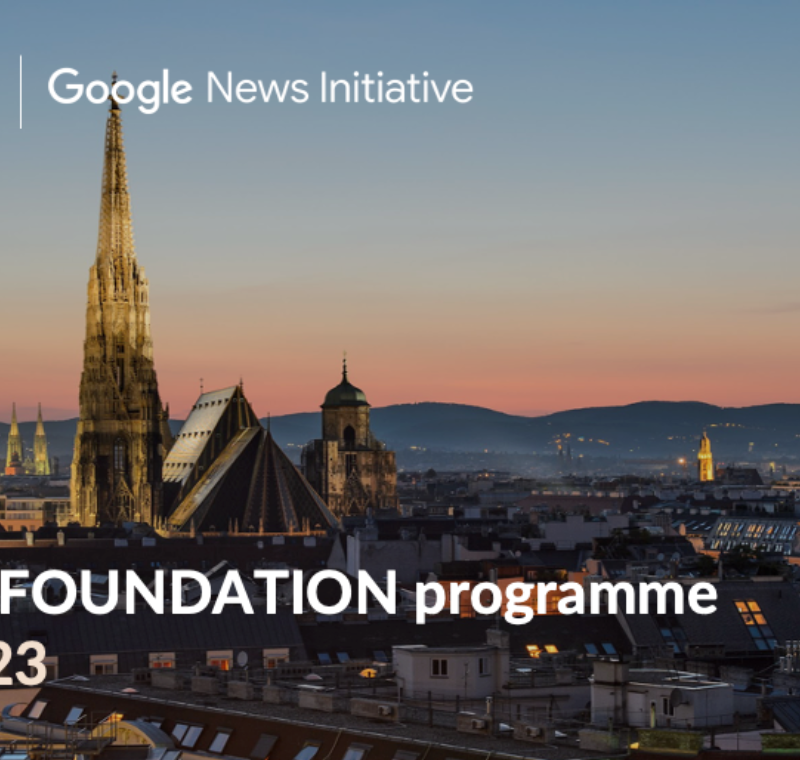Google Digital Immersion Week highlights importance of industry collaboration
At the end of August, FIPP and the Financial Times partnered with Google on its Digital Immersion Week – a new 5-day programme designed to share best practice across the industry. The training proved to be a huge success (so much so that we recently announced the launch of a second week) and highlighted the value of working collaboratively within the industry not only between publishers, but in partnership with big tech platforms as well.
Alastair Lewis, former Managing Director of both Haymarket and Future Plc, and Founder of new media consultancy firm Quested Consulting, moderated the sessions. He says that a unified industry, especially during a time of challenge and change, is more important than ever before.
“I think it’s really crucial now more than ever that businesses like the FT – that have great stories to tell and great experience already in setting out how they have changed, and are changing their business models – are willing and able to share that learning with other publishers. Because actually it’s really important that we’re all essentially following those models and that we have a uniform approach, or at least a more uniform approach, across the industry.”
“It’s an industry that faces challenges on all sorts of fronts, not least from the dominance of some of the major platforms. So the support and the funding that Google particularly are putting into this programme is really appreciated. It’s really important as a way of highlighting and sharing best practice that will not only benefit each of the attendees, but we hope also more and more publishers around the world, as well as the bigger players like the FT and Google themselves.”
Expanding Digital Revenue Streams
As Lewis indicates, the course included case studies from the FT, as well as leading magazine media brands. It looked at the more general shift from print to digital that continues to take place for many publishers around the world, as well as some of the more recent ways in which the digital media offering itself has evolved. One of the most important topics covered was the growing prominence of consumer revenues, as the industry begins to adjust to the post-cookie world.
Sergey Miroshnychenko, CEO of Cosmopolitan in the Ukraine, participated in the course and emphasises the importance of this revenue stream in today’s industry.
“It’s important because we are often focussed on just our advertising revenue,” says Miroshnychenko. “This programme has given us the motivation to push into other areas, like consumer revenues. The consumers are after all, the reason we really produce our digital and print products. And of course, what was also important is that we not only gained knowledge, but the course was taught in a way to encourage us to implement it as well. The atmosphere created was amazing, and we saw so many different business, different approaches, and different personas and could learn not only from our tutors but also from our colleagues.”
“For me, this was a really inspirational course. It was very well structured and reflected a very clear roadmap in terms of what we should do, what we should think about, and how to reach our goal. Because really today, we have so many different opportunities, and if we don’t have that goal that we would like to reach, it means that we will spend our energy and efforts on everything… and then we can’t do anything.”
Finding your North Star
Sergey’s points about both focus and implementation are of course important ones. What many people found unique about Google Digital Immersion Week was the level of collaboration – and active participation – that takes place. There are one-on-one sessions looking specifically at attendees’ own businesses, transparent case studies from a variety of brands, and one aspect in particular that appears to have captured the imagination is the FT’s ‘North Star’ concept – a practice for prioritising one key goal around which an entire organisation can unify:
Elina Schüller, Media Director, Aller Media OY, Finland
“When I joined this class, I was coming in with an open mind and basically looking for the FT’s learnings. I was really keen to dive into that, and it was really exciting. And I got plenty of learnings from it. For example, we have already worked on similar things to the FT, but we are in the early phases of our journey. So hearing how they have built out their key areas and in particular their North Star concept was very interesting.”
Jowita Żak, Senior Business Manager, Food, Garden, & Crafting segments (print magazines), Poland
“The whole programme felt perfectly tailored for me, because I’m absolutely focussed on print now, but my job is to look at the whole ecosystem of the business, print and digital. I really liked the north star project. This I think was very important for me, in creating a holistic frame. Building on day one, two, or three, something that we could eventually take away and start implementing in our actual work. The closure at the end for me was like, ‘OK, got it!’ It was the moment when I saw all of the elements, and how all the pieces of the puzzle build the whole picture.”
Dorien Luyckx, Board Member to advise on digital strategy and business model, EOS Magazine, NL + BE Region
“Determining a north star that fits all departments (both editorial and commercial) can help move innovation faster throughout the company. By actively engaging and setting some time apart for the workshop, it gave us time to think about possible new steps without being distracted by the day-today business, infusing energy into new projects.”
“I liked the north star framework to go from a general goal company-wide to possible ideas to achieve this and attached hypotheses that should be tested to ensure success (and who within the company should be involved). It offered some final ideas that you can immediately move forward from to start gathering data and do experiments. It was also the hardest part of the workshop, but definitely helped to move further than only abstract goals like ‘more revenue’ or ‘more subscribers’.”
The Future of Industry Collaboration
The next Google Digital Immersion Week is already sold out. But the popularity of the format and the strong feedback we have received has shown a renewed thirst for a collaborative industry approach to digital publishing, particularly at a time when Covid-19 and the subsequent lockdowns it has caused around the world have removed an element of the day-to-day contact we are all used to seeing in our working lives.
This goes for working in tandem across editorial and commercial departments, between publishers in terms of sharing best practice and practical collaboration, and from the wider perspective of forging greater partnerships between emerging platforms and traditional publishers, as Google’s involvement in the programme demonstrates. Stay tuned to FIPP.com for further updates on this exciting new format, and you can find out more about FIPP’s wider industry training programme range here.










